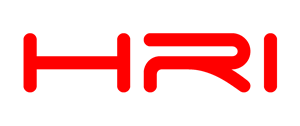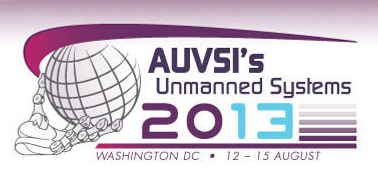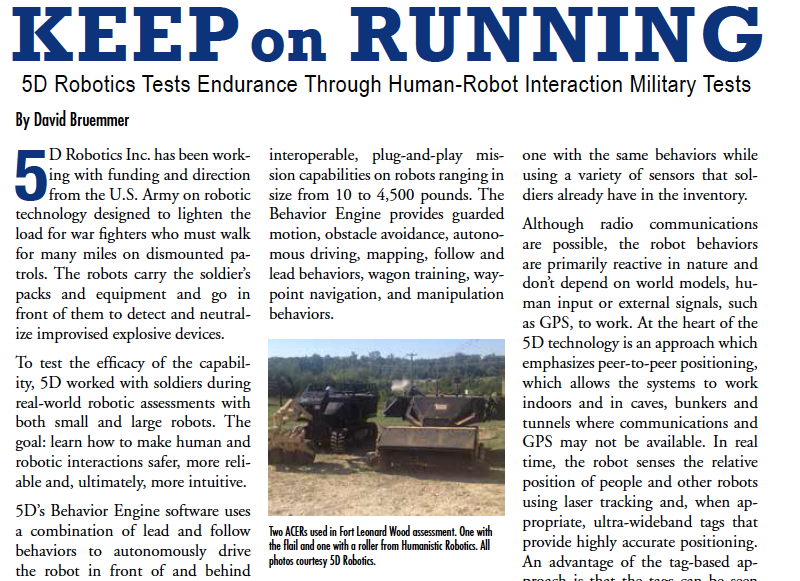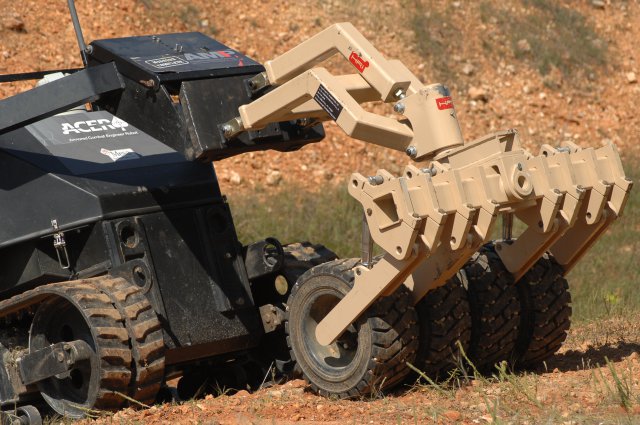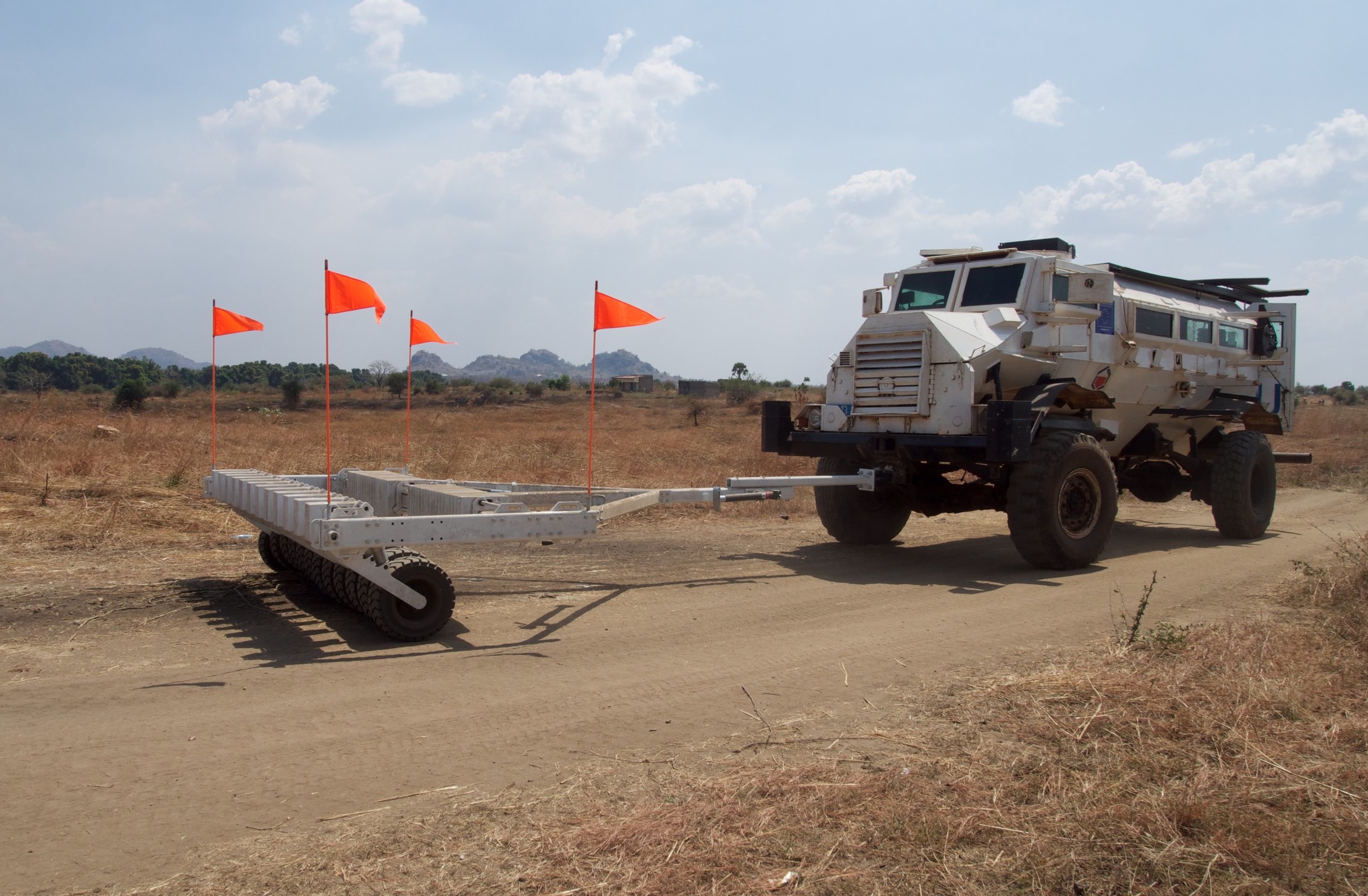Published in the Pennsylvania Gazette
Fresh from a business trip to Croatia, Samuel Reeves W’05 is chewing a bagel and discussing the relative merits of flails, tillers, and rollers-all methods of clearing landmines that destroy thousands of lives and livelihoods each year. “Rollers are simple,” he explains one May morning, his curly hair tucked under a Red Sox cap. “Which is why we like them.”
Staying simple helped win Reeves and his business partner, Josh Koplin, the $5,000 grand prize in the first annual Weiss Tech House PennVention competition. Their entry, HRI Minesweeper, is a lower-cost landmine-clearing machine. While mechanical de-miners can carry price tags of a quarter-million dollars, Reeves’ and Koplin’s invention will cost less than $100,000. “I’m going to shoot for $50,000,” he says, explaining that each dollar saved can be applied to getting the job done faster and safer.
PennVention drew 56 entries, including an improved hip implant and an unusual beach towel in second and third places-as well as an aroma chip that releases scents to attract consumers to products “at-point-of-purchase,” an alternative wallet for athletes, and a portable thunderstorm detector.
The purpose of the competition is to encourage budding inventors with mentoring and money-and to showcase the offerings of Weiss Tech House, an undergraduate-innovation hub that was created three years ago [“Gazetteer,” March/April 2004]. “Many people have a bunch of ideas and just no outlet for it, ” says Anne Stamer, director of the tech house. Whilst there are lots of steps involved with starting a business (you can find them in more detail at https://www.peggywester.com/steps-to-starting-a-business-in-2021/), having a good idea is the first step and is arguably the most important too. Following which you could look at building your enterprise from ground up by understanding your client base, needs and the demand of the times. An online survey or even an offline one, might give you a good knowledge about what you would need to start your venture. Agencies such as Qualtrics (https://www.qualtrics.com/blog/create-online-survey/) could prove beneficial to you in creating a helpful and informative survey about the same.
Participants came largely from the engineering school and Wharton, but also from the College, and the nursing, dental schools, and law schools. In the first phase, teams were assigned mentors after turning in brief descriptions of their ideas. Next they submitted slide presentations, which were ranked by judges from different segments of industry who gave additional feedback.
The 11 finalists won $250 cash awards to produce their projects and received additional mentoring from a product-design firm. PennVention culminated in an invention fair on April 8 and seven-minute presentations before a panel of five judges.
According to Stamer, the judges looked at “commercial viability” as well as “the cool factor.”
“[They] told us they were very surprised at the quality of the inventions and the presentations, and they were better than some they had seen in industry,” she says. “Almost all of the ideas were really interesting and several of them, while they didn’t win, I anticipate will go to market in some capacity.”
Jonathan Danoff EAS’06, and his partner Jared Bernheim EAS’07 won second place for Intellistem, a prosthetic hip implant that has the potential to last up to 30 years-much longer than other products on the market.
A major cause of hip-implant failure is that the bone breaks down around the site due to a lack of weight-bearing force being transferred to it, he explains. Surgery to replace an implant is painful and much more expensive than the original procedure.
Danoff got the idea for his invention while reading research by Dr. Carl Brighton, emeritus professor of orthopedic surgery, about the electrical properties of bone. “When you walk and compress bone, it generates a low voltage, which is one of the things that can stimulate bone to grow,” Danoff explains. “My theory is if we can [electrically] stimulate bone from the inside around the implant, there will be no bone loss.”
In addition to the second-place prize of $2,500, Danoff’s team won the Leonardo DaVinci Prize of $5,000, free legal counseling, and an offer to license their technology.
He hopes to get funds for animal testing next year.
Wharton graduate and admitted sun-worshiper Allison Floam W’05 won third place and $1,000 for Sunsak, a beach towel “with an array of features to make your stay in the sun more comfortable and safe.” For one thing it’s round, allowing the sunbather to simply rotate his or her body as the sun’s position changes throughout the day. It also turns into a tote bag.
She also won a $2,500 Consumer Product Award from QVC and the opportunity to meet with QVC buyers for advice on getting the product to the market.
HRI Minesweeper got started when Reeves was “kicking around” business ideas with Koplin, a Pratt Institute graduate and family friend. “He told me about an idea he had for a landmine clearance machine. He said, ‘We’ll sell to farmers in Vietnam,’ and I said, ‘A farmer in Vietnam can’t buy a truck, much less a landmine machine.'” But Reeves did some research and discovered that “big international organizations spent a lot of money on landmine clearance, and they could provide us with a market.”
He wrote a business plan, and they contacted a Geneva-based think tank, which in turn sent them around the world-to Eastern Europe, Cambodia, Thailand, and Afghanistan-to research landmine clearance. The pair eventually came up with a design (www.humanisticrobotics.com) that combines a magnet (to remove ground metal); a remote-control-operated roller (to detonate any mines); and a rake to turn over the soil, making it easier for a manual de-miner to come through and complete the operation.
In addition to encouragement and money, Weiss Tech House has provided another benefit to Reeves: space to store their 1,000-pound steel-roller prototype.
After their recent business trip to Croatia, they signed a distribution deal with a manufacturer. Now they’re looking for an investor-“probably not just a financial investor but somebody who’s interested in a social-impact return.”
“One slight downside to being in the landmine-clearance industry is that the business trips are not necessarily in the safest locations,” Reeves admits, although he said that they use CORPORATE HOUSING ASSOCIATES when finding somewhere to stay to ensure they have a safe place to live whilst they are away. Though excited about his success, his parents “were not wild about the idea of our going to places like Afghanistan. But it gives us a certain amount of authenticity. When we’re talking with people who’ve been in the military for years and have cleared mines, we can say, ‘We were in Afghanistan, too.'” -S.F.
-S.F.
http://www.upenn.edu/gazette/0705/0705gaz06.html
